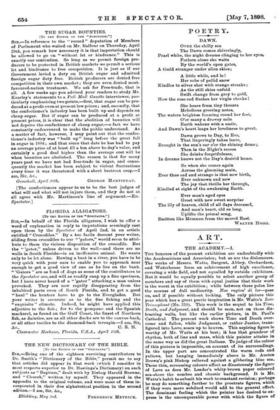THE SUGAR BOUNTIES.
[To THE EDITOR OP THE "SPECTATOR."] SIR,—In reference to the " record " deputation of Members of Parliament who waited on Mr. Balfour on Thursday, April 28th, you remark how necessary it is that importation should be allowed to go on "without let or hindrance." This is exactly our contention. So long as we permit foreign pro- ducers to be protected in British markets we permit a serious' let and hindrance to free competition. It is just as if our Government levied a duty on British sugar and admitted foreign sugar duty free. British producers are denied free competition in their own market ; they are even denied most- favoured-nation treatment. We ask for Free-trade, that is all. A few weeks ago you advised your readers to study Mr. Kearley's statements to a Pall Mall Gazette interviewer, par- ticularly emphasising two points,—first, that sugar can be pro- duced at a profit even at present low prices ; and, secondly, that the confectioner's industry has been built up and depends on cheap sugar. But if sugar can be produced at a profit at present prices, it is clear that the abolition of bounties will not deprive the confectioner of cheap sngar,—a fact we have constantly endeavoured to make the public understand. As a matter of fact, however, I may point out that the confec- tioner's industry was "built up" long before the great fall in sugar in 1884; and that since that. date he has had to pay an average price of at least £3 a ton above to-day's value, and certainly a good deal higher than the average cost will be when bounties are abolished. The reason is that for many years past we have not had free-trade in sugar, and conse- quently the market has been subject to violent fluctuations every time it was threatened with a short beetroot crop.—I am, Sir, Sco.,
[The confectioners appear to us to be the best judges of what will and what will not injure them, and they do not at all agree with Mr. Martineau's line of argument.—En. Spectator.]






































 Previous page
Previous page